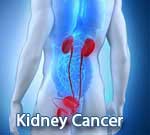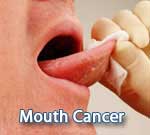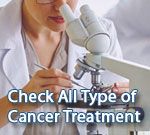Prostate Cancer
Followup Care:
Nutrition and Physical Activity
It is important for men with prostate cancer to take care of themselves. Taking care of yourself includes eating well and staying as active as you can.
You need the right amount of calories to maintain a good weight. You also need enough protein to keep up your strength. Eating well may help you feel better and have more energy. Your doctor, dietitian, or other health care provider can suggest a healthy diet.
Many men find they feel better when they stay active. Walking, yoga, swimming, and other exercise can keep you strong and increase your energy. Exercise may reduce pain and make treatment easier to handle. It also can help relieve stress. Whatever physical activity you choose, be sure to talk to your doctor before you start. Also, if your activity causes you pain or other problems, be sure to let your doctor or nurse know about it
Follow-up care after treatment for prostate cancer is important. Even when the cancer seems to have been completely removed or destroyed, the disease sometimes returns because undetected cancer cells remained somewhere in the body after treatment. Your doctor will monitor your recovery and check for recurrence of the cancer. Checkups help ensure that any changes in your health are noted and treated if needed. Checkups may include lab tests, x-rays, biopsies, or other tests. Between scheduled visits, you should contact your doctor if you have any health problems
Sources of Support
Learning you have prostate cancer can change your life and the lives of those close to you. These changes can be hard to handle. It is normal for you, your family, and your friends to have many different and sometimes confusing feelings.
You may worry about caring for your family, keeping your job, or continuing daily activities. Concerns about treatments and managing side effects, hospital stays, and medical bills are also common. Doctors, nurses, and other members of your health care team can answer questions about treatment, working, or other activities. Meeting with a social worker, counselor, or member of the clergy can be helpful if you want to talk about your feelings or concerns. Often, a social worker can suggest resources for financial aid, transportation, home care, or emotional support.
Friends and relatives can be supportive. Support groups also can help. In these groups, patients or their family members meet with other patients or their families to share what they have learned about coping with the disease and the effects of treatment. Groups may offer support in person, over the telephone, or online. You may want to talk with a member of your health care team about finding a support group.
You and your partner may be concerned about the effects of prostate cancer on your sexual relationship. You may want to talk with your doctor about possible treatment side effects and whether these are likely to last. Whatever the outlook, you and your partner may find it helps to discuss your concerns. You can find ways to be intimate during and after treatment. For some couples, it helps to talk with a sex counselor





































